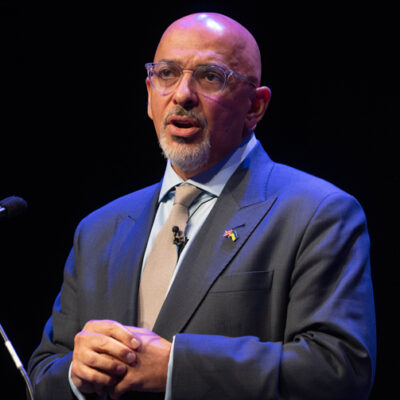[ad_1]
The DfE has revealed is first set of digital and technology standards for schools
The DfE has revealed is first set of digital and technology standards for schools


Education secretary Nadhim Zahawi revealed he is “considering the potential” wider use of online exams, as the government unveiled its first set of school technology standards.
He told attendees at today’s BETT show this form of assessment could bring “significant benefits” which he is carefully considering.
It comes after he promised to secure high-speed internet for every school in England by 2025 with the help of a £150 million support fund.
Zahawi ‘keen to explore’ online exams
The secretary of state told attendees that he was “keen to explore” the potential for digital assessment with Ofqual and the Standards and Testing Agency (STA).
He said: “Other countries have been experimenting in this area and it’s possible we can learn from what they are doing.”
Progress has been made in primary assessments with the multiplication tables check, as well as in vocational and technical qualifications, Zahawi said.
Therefore he has “asked the STA to continue this work”.

“It’s possible that more digital assessment could bring significant benefits to students, teachers and schools and I want to start carefully considering the potential opportunities in this area.”
Schools digital and technology standards set out
The DfE also today released its first set of digital and technology standards for schools.
The government say these standards “should be used as guidelines to support your school or college [to] use the right digital infrastructure and technology”.
Zahawi clarified in his speech this morning that he is “not going to wade in and start telling schools which bits of kit to use or when” rather he would “make sure schools get the guidance and information they need to make informed decision”.
The guidance sets out standards for schools’ broadband, network switching, network cabling and wireless networks.
Schools are told that they should use a “full fibre connection for their broadband service” to ensure they will get the fastest speed available.
Schools are told to “implement this standard as soon as you can” but are warned that the copper connections “widely used in schools at the present, do not meet this standard”.
A move to a full fibre connection will aid schools in their transition to cloud-based management systems – which Zahawi called “the way forward” during his BETT speech.
According to data from the Department for Digital, Culture, Media and Sport (DCMS) there are 3,835 schools in postcodes that do not have access to full fibre.
The DfE also advises schools that they should have a “backup broadband connection to ensure resilience and maintain continuity of service”.
Such measures would mitigate against a “single point of failure” amid the increased reliance on internet-based services.
Schools are told these resilient services should be implemented alongside, or as soon as possible after a new connection.
The DfE already expects schools to have appropriate IT security and safeguarding systems in place to comply with statutory guidance on keeping children safe in education.
But they are also now advised to install security features to their wireless networks in order to “stop unauthorised access” and “misuse of sensitive school or student data”.
This standard should be met when a school next upgrades an “underperforming or unsupported solution”.
Elsewhere schools are advised to ensure they have a “fully functional” wifi signal throughout their school site and the ability to “centrally manage” their network.
[ad_2]
Source link

